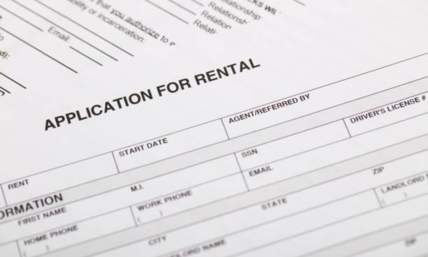Do You Need A Degree To Become An Accountant? - What to Know
While you may be thinking about accountancy as a field you'd like to get into, there is more than one way that you can have the ideal job, but many might be thinking about whether you need a degree in the area to make any progress.
While having a degree is advantageous, you only need to complete the CPA examination to become a certified public accountant, though you will have to meet specific requirements of the state you are in to earn this license.
Even with this, there are many other paths that you can look into, but first, why is it important that you have this certification?
Also read: 11 Best Personal Finance Books

The Importance Of Certification
The distinction of an accountant can seem like a protected term, but there isn't much stopping you from giving yourself this title, but you will be limited to what you can do in the confines of the specific law that a state has on the practice.
For example, someone without any CPA certification can't sign off on audits or file reports that apply to federal agencies and larger public businesses. You may need more than what you can do and what area you work in.
Without this, your role options are limited to bookkeeping clerk, administrative assistant, accounts payable clerk, and tax preparer. However, some businesses may prefer the experience you've gained, and you're more likely to become an accountant.
Also read: 12 Best Finance Podcasts For Your Savings
What Type Of Accountancy Are You Interested In?
While this may take you longer in the long term, getting experience can be something that those with a degree may struggle to get, as it teaches practical skills outside of a learning environment.
Getting an idea of what path you want to take is a good idea to get an idea of the different types of accountancy there are, so you can make a curated path toward them if they specialize in an area you're interested in.
Also read: Cost Of Living By State In USA

Management Accountancy
In this position, you can expect to have duties such as preparing data for use within a company and helping businesses perform better by measuring, identifying, and analyzing information passed onto managers.
This role usually requires a 4-year degree, which may be in finance, communications, or a similar field. It will be challenging to work up to and could depend massively on experience.
Auditor
This critical role examines financial reports to authenticate them. Hence, they comply with tax laws and standards and can be used to help spot inefficiencies and save money in these areas.
As you won't be able to do this legally without the CPA certification, it can be pretty stressful as you have to ensure that everything is lawful, and you risk your position if there are any mistakes.
Government Accountancy
This role can be found in many areas of the government, from state to federal agencies, and here you can be working with public funds and auditing or even investigating them. These roles can also help with the city's budget funds and the viability of using them in specific ways.
For this career, you'll need extensive knowledge of tax codes, government statutes, and other regulations alongside an MBA or CPA as standard.
Also read: How To Manage Personal Finances
Forensic Accountancy
These accountants can work for insurance companies, public accounting firms, banks, and even some governmental agencies. They can deal with complex financial and business records and determine their accuracy and importance.
For this role, you need to be a qualified accountant and have certification from a professional body such as the ACCA accreditation, which can be found in many countries.
Project Accountancy
These accountants work closely with external suppliers, project managers, and accounting teams. They are tasked with making reports showing whether a company's budget is over or under what the requirements require.
The impotence of this role means you'll need at least an accounting degree or a high level of accounting knowledge at this level, as businesses such as these are likely to be looking for those with a lot of experience.
Certified Public Accountancy
This is the easiest way into this industry as it may only require you to complete the CPA examination and cover most areas you would expect to perform under businesses, education, not-for-profit, and some government organizations.
While you can choose to work in public accounting, you may decide to focus on a particular area. For this, a four-year degree with 1-3 years of work experience can see you reach a higher potential, with one role including a chief financial officer.
Also read: Independent Contractor Pay Stub

The Value Of Work Experience
Even if you complete a CPA exam and are ready to progress in your career, the material taught in the program covers the fundamentals of accounting. Even with this, it may not cover what you need for a specific career, so some other experience is likely required.
For example, some employers may value work experience and the ability to research GAAP developments and other changes that may occur as laws change and ways of optimizing the industry appear.
This can be helpful when applying for a position if you ask about these developments and show how you have dealt with them. It shows the employer that you know how these fundamentals work, which may be more relevant to the job.
The Bottom Line
As with any industry, there can be opportunities to improve your knowledge, which may mean finding ways to develop your skills and become more competent. More private organizations will require a lot of this as there can be many repercussions as a result of your work.
If you find out the requirements of this certification for your state, you can find free resources and practice exams so you can be sure to pass the first time. The exam can cost between $150-$200 to complete, so you want to be sure that the investment will pay off.
While on the subject of your finances it is vital that your pay stubs are also in check. Our paystub generator will make sure that they are.















